Many people search for ways to recover quickly after consuming alcohol or other substances. The idea of how to sober up fast often comes from the need to feel alert, focused, or simply back in control. However, sobering up is not about finding a magical quick fix. It’s about understanding how your body works and what you can do safely to support its natural recovery.
In this detailed guide, we explore how the body processes alcohol, cannabis, cocaine, and other substances. You’ll learn what truly helps, what doesn’t, and why patience, hydration, and self-care matter most.
Understanding What Sobering Up Really Means
Sobering up is the process of your body clearing intoxicating substances from your system and returning to its natural balance. This happens primarily through metabolism, hydration, and rest.
The Truth About “Instant Sobriety”
There is no instant way to completely eliminate substances from your bloodstream. Once consumed, they must be metabolized by the body. What people often mean when they say they want to “sober up fast” is that they want to feel more alert or functional as the effects wear off.
How the Body Processes Intoxication
Your liver, kidneys, and lungs all work together to process and remove toxins. Alcohol, for example, is broken down mainly by the liver, while drugs like cannabis or cocaine are metabolized differently. Hydration, nutrition, and rest support these natural processes but do not replace them.
How to Sober Up Fast From Alcohol
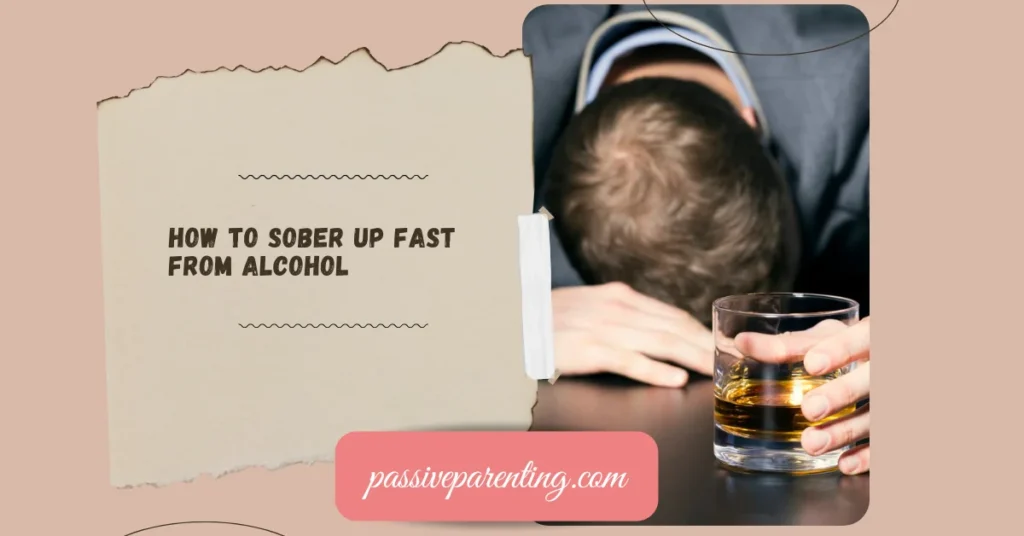
Alcohol is one of the most common substances people seek to “sober up” from. Understanding what alcohol does inside your body can help you manage its effects safely.
What Happens When You Drink
After drinking, alcohol enters your bloodstream through the stomach and small intestine. It affects your brain’s communication pathways, leading to slowed reactions, reduced coordination, and changes in mood and judgment.
The Role of the Liver
The liver metabolizes about one standard drink per hour. This means no matter how much water or coffee you drink, your body still needs time to process alcohol completely. However, certain actions can help you feel steadier as your system recovers.
Hydration and Nutrition
Water supports your body’s natural detox process by replenishing lost fluids. Alcohol dehydrates you, which contributes to fatigue, dizziness, and headaches. Rehydrating helps your body function better as it clears alcohol from your system.
Eating foods rich in protein, complex carbohydrates, and electrolytes can stabilize your blood sugar and energy levels while your liver works.
Rest and Time
Rest is one of the most effective ways to recover. Sleep allows your body to repair itself and restore chemical balance. While you can’t speed up metabolism drastically, giving your body time is the safest and most effective way to sober up.
How to Sober Up Fast From Weed

The effects of cannabis differ from alcohol. THC, the active compound in weed, affects brain receptors that influence perception, mood, and coordination.
How THC Works
THC binds to cannabinoid receptors in your brain and nervous system. It can cause relaxation, altered perception, and slowed reflexes. The intensity of the high depends on the strain, dosage, and personal tolerance.
Time and Metabolism
THC can linger in your system for hours or even days, depending on how much you consumed. However, the psychoactive effects typically fade after a few hours.
Calming the Mind and Body
If you feel too high, focus on grounding yourself. Simple breathing exercises, drinking water, and staying in a calm environment can help your body regulate itself. Gentle movement or a light snack may also help reduce discomfort.
Hydration and Comfort
Like alcohol, hydration supports your body’s natural balance. Water, herbal tea, or light snacks can help stabilize energy and reduce feelings of anxiety or dizziness as THC’s effects subside.
How to Sober Up Fast From Cocaine
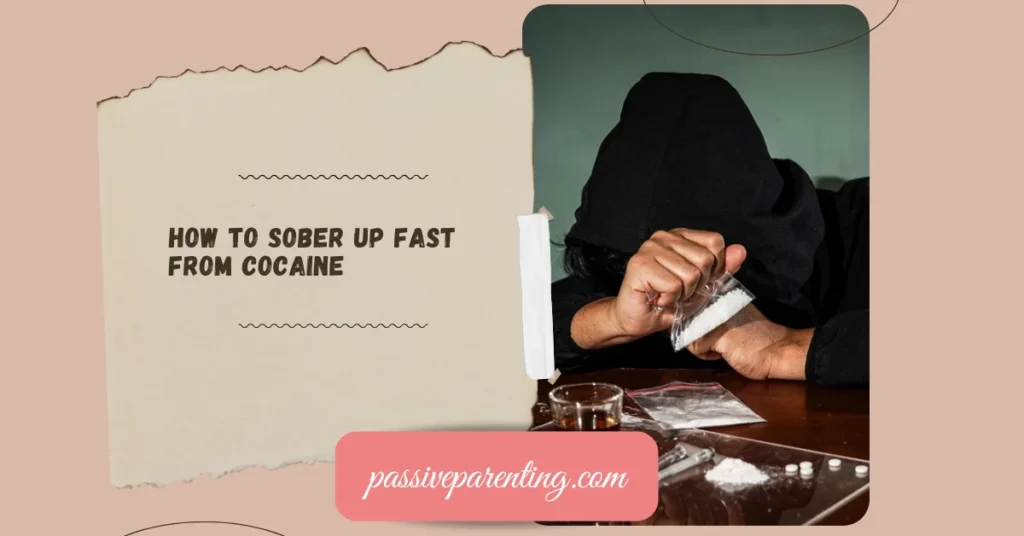
Cocaine is a powerful stimulant that can cause euphoria, energy surges, and alertness. However, the comedown can be harsh, leaving the body and mind exhausted.
What Cocaine Does in the Body
Cocaine increases dopamine levels, which produce intense pleasure and alertness. As the drug wears off, dopamine levels drop sharply, leading to fatigue, anxiety, and irritability.
The Importance of Hydration and Rest
During recovery, hydration is crucial. Cocaine dehydrates the body and strains the heart and nervous system. Drinking water and resting help restore equilibrium.
Managing Energy Levels
After stimulant use, your body needs time to recover. Gentle movement, nutritious food, and sleep help your system regain stability. Because cocaine has strong effects on the cardiovascular system, any concerning symptoms should always be evaluated by medical professionals.
How to Sober Up Fast From MDMA or Ecstasy
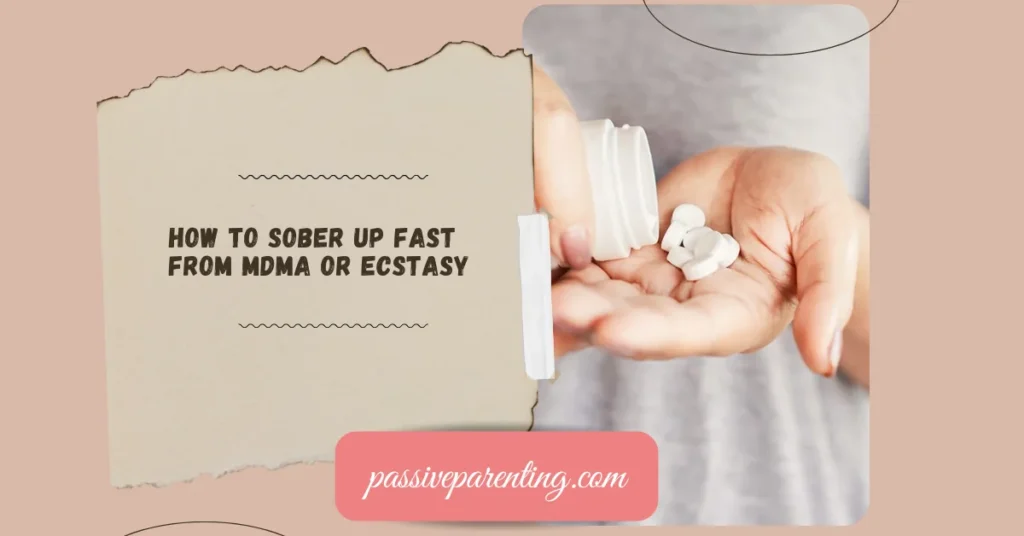
MDMA, commonly known as ecstasy, affects both mood and physical sensations. It increases serotonin and dopamine, creating feelings of happiness and connection.
What Happens During Use
While under its effects, people often experience euphoria, heightened energy, and emotional warmth. Once the drug wears off, serotonin levels drop, leading to fatigue, sadness, or confusion.
Hydration and Cooling
Because MDMA raises body temperature and causes dehydration, drinking water slowly and staying cool are important. Overhydration, however, should be avoided, as balance is key.
Rest and Nutrition Afterward
After the effects fade, rest, nutritious food, and electrolyte-rich fluids help your body recover. Sleep restores serotonin levels and supports mood regulation.
How to Sober Up Fast From Methamphetamine
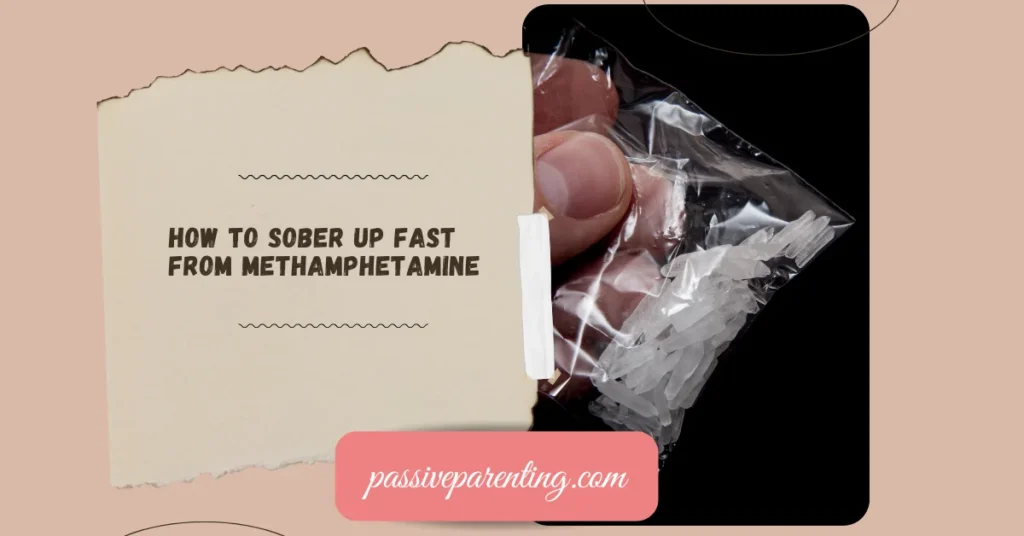
Methamphetamine, or meth, is a powerful stimulant that can drastically impact the nervous system.
Effects on the Brain and Body
Meth floods the brain with dopamine, causing intense alertness and energy. It can also increase heart rate, blood pressure, and anxiety. After use, the body experiences depletion, leading to fatigue and emotional crashes.
Supporting Recovery
The best way to recover from meth’s effects is rest, hydration, and balanced nutrition. Because it severely depletes physical and emotional energy, long rest periods and proper food intake are essential for recovery.
How to Sober Up Fast From Opioids
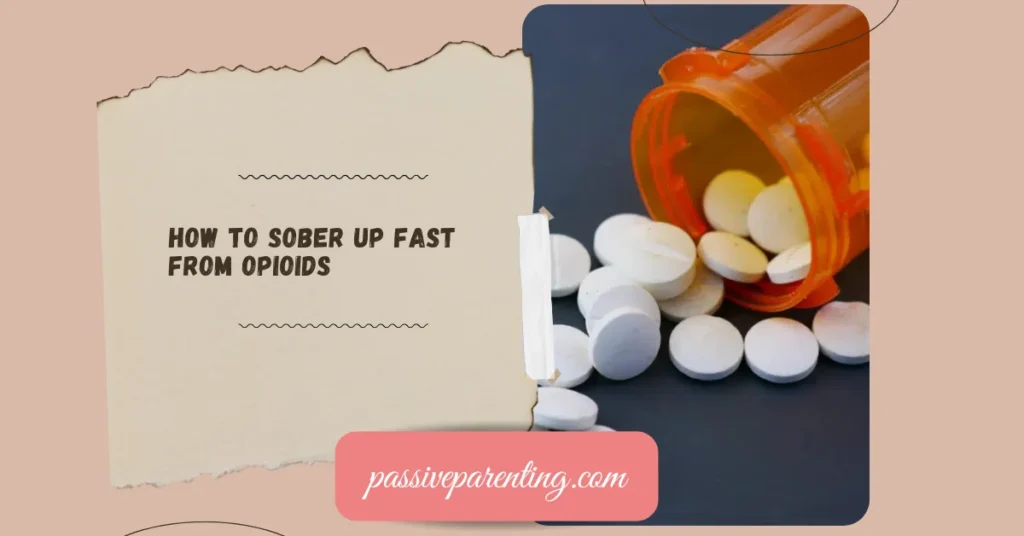
Opioids, including painkillers, affect the central nervous system by blocking pain and inducing relaxation.
What Happens During Use
Opioids slow breathing, heart rate, and reflexes. When taken in excess, they can cause dangerous respiratory depression.
Safe Recovery Measures
If someone appears heavily sedated or unresponsive after opioid use, emergency medical care is required. For milder effects, resting in a safe place and avoiding additional substances help the body stabilize as the medication wears off.
How to Sober Up Fast From Prescription Drugs

Prescription medications such as sedatives or antidepressants can interact with alcohol or other substances.
Recognizing Risks
Combining substances can amplify sedation, confusion, or dizziness. It’s important to understand how your prescriptions affect you and to avoid mixing them with alcohol or recreational drugs.
Returning to Balance
Hydration, nutrition, and rest assist your body in reestablishing normal chemical levels. Consulting a healthcare professional for guidance is the safest choice if side effects persist.
How to Sober Up Fast After Mixing Substances
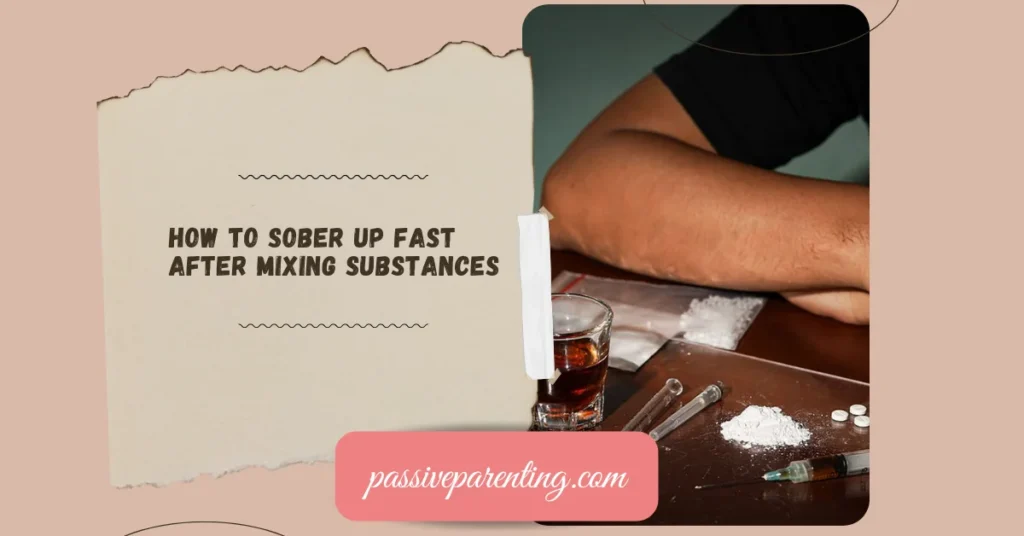
Mixing substances such as alcohol with stimulants or sedatives significantly increases health risks.
Why It’s Dangerous
The body has to process multiple chemicals at once, which can strain the liver, heart, and brain. Combining substances can also mask certain effects, leading to overconsumption.
Stabilizing Safely
If you’ve mixed substances and feel unwell, seek medical assistance immediately. While waiting, stay hydrated with water and remain in a calm, comfortable environment. Avoid further consumption and allow your body to rest.
Natural and Supportive Ways to Feel Better
Although nothing can instantly remove substances from your system, certain wellness practices support recovery.
Hydration
Water and electrolyte drinks restore balance and improve circulation. They help your body perform its natural detoxification functions efficiently.
Rest
Sleep and quiet time reduce strain on your organs and nervous system. Resting allows your metabolism and brain chemistry to return to normal.
Nutrition
Foods rich in vitamins, antioxidants, and lean proteins strengthen your body and aid recovery. Bananas, leafy greens, nuts, and whole grains can all support stable energy and mood.
Gentle Movement
When feeling well enough, light stretching or a walk can promote blood flow and help clear mental fog. Physical activity supports endorphin release, which helps balance mood.
What Not to Do When Trying to Sober Up
There are many myths about how to sober up fast, but some methods can actually make things worse.
Coffee Doesn’t Make You Sober
Caffeine may make you feel more awake, but it doesn’t reduce the amount of alcohol or drugs in your system. It can also increase dehydration and anxiety.
Cold Showers and Exercise Don’t Speed Up Metabolism
While a cold shower may refresh you, it doesn’t alter how your liver or kidneys process substances. Strenuous exercise can even be dangerous if your body is still under the influence.
Avoid Taking Other Substances
Trying to balance one substance with another, like drinking coffee after alcohol or using sedatives after stimulants, can confuse your system and increase health risks.
When to Seek Professional Help
If you experience ongoing confusion, irregular breathing, or loss of consciousness after using alcohol or drugs, medical help is necessary. Health professionals can monitor vital signs and provide treatments to support recovery safely.
For individuals who regularly consume alcohol or show signs of dependence, a medically supervised alcohol detox may be required. This ensures withdrawal is managed safely, reducing the risk of severe complications.
Even if symptoms seem mild, consistent difficulty feeling alert, calm, or stable after substance use may indicate your body is struggling to adjust. Consulting a healthcare provider ensures long-term wellbeing.
Long-Term Ways to Stay Sober and Alert
Sobering up quickly is not just about the moment after using a substance. It’s also about developing habits that maintain clarity and balance.
Healthy Lifestyle Choices
Regular exercise, good sleep, and a balanced diet keep your metabolism and brain chemistry strong. These habits improve how your body handles stress and recovery.
Emotional Wellbeing
Managing stress and emotions through therapy, journaling, or mindfulness reduces the temptation to overuse substances and helps you maintain stability.
Building Support Systems
Having friends, family, or professionals you can rely on makes recovery and prevention easier. Support networks help you stay consistent and confident.
Final Thoughts on How to Sober Up Fast
Understanding how to sober up fast begins with recognizing what your body needs to recover. There is no instant cure, but patience, hydration, nutrition, and rest are the foundation of safe recovery.
Each substance affects the body differently, yet the principle remains the same, time and care are your best tools. By supporting your body naturally, avoiding unsafe shortcuts, and seeking professional help when needed, you can restore balance safely and effectively.
Sobering up is not about speed but about safety, awareness, and long-term wellbeing. Listening to your body and treating it with respect ensures that recovery is not just fast, but healthy.




